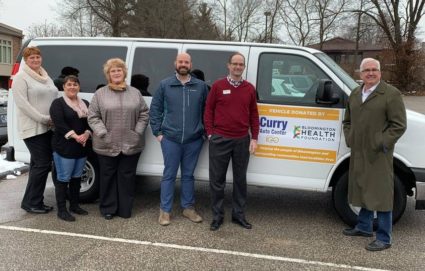
In a 2018 grant proposal to BHF, Centerstone wrote:
On a given day in Bloomington/Monroe County, there are more than 300 homeless individuals based on the Point in Time Count. The Substance Abuse and Mental Health Services Administration reports that 42% of homeless individuals have a severe mental illness or a chronic substance use disorder, and this rate is climbing due to the opioid epidemic. Among the chronically homeless, nearly 60% have a lifetime mental illness and 80% have a lifetime substance use disorder. While the chronically homeless represent only 18% of the homeless population, they consume 50% of the services- an extraordinary cost to Bloomington and Monroe County including emergency room services, law enforcement, and other human service providers.
An important predictive factor in an individual’s recovery and resilience is employment. People with histories of homelessness, including those with disabilities or addiction, want to work when given the opportunity and support to do so. Research shows that just housing or treatment alone can create isolation. Employment not only provides income, but offers a structured activity with dignity, a sense of purpose and accomplishment. Employment also promotes membership in the community, social inclusion, and work experience for those who have a longtime absence from the workforce and/or a felony conviction. Employment before or during behavioral health and substance abuse treatment predicts both longer retention in treatment and the likelihood of a successful recovery.
Greg May, Director of Administration for Centerstone said, “Gaps in employment history, lack of a permanent address or a voluntary disclosure of substance abuse or mental health disorders often block potential job offers.”
In 2017 Centerstone and the City of Bloomington partnered to create and pilot the Supported Employment Program. The program is modeled after similar national projects, hiring recovering individuals to work seasonal positions maintaining Bloomington parks May through November. Participants are also given access to Centerstone’s Peer Run Recovery Center where they can receive recovery and employment coaching, life skills training, and treatment services. The facility also provides a space to eat, shower, and do laundry.
The costs for the program include:
- Wages, taxes and uniforms, funded by the City of Bloomington
- Life skills training and onboarding and a supervisor coach with grant monies from the Bloomington Health Foundation in addition to a van for employee transportation in partnership with Curry Auto Center
- A second supervisor coach, administration charges, and implementation, covered by Centerstone
In their most recent grant report, Centerstone said:
This year we have the park clean-up crew, and landscaping crew, and a golf course crew. Mid-way through the 2020 season we were asked to add crew that would be responsible for playground sanitization, grounds keeping at Switchyard Park, and facility and ground work at Twin Lakes Recreation Center. This expansion added six additional crew members and two supervisors. The crews also assisted in providing additional assistance at Seminary Park particularly in the morning hours.
In September 2020, we were contacted about expanding work opportunities through the Mayor’s Recover Forward Initiative. This expansion created ten crew positions and two supervisor positions. This expansion allowed the supported employment program the opportunity to become a year-round program. Prior to this expansion, the supported employment program offered only seasonal work.
 When the program originally began, it was comprised of one crew of five employees and a supervisor.
When the program originally began, it was comprised of one crew of five employees and a supervisor.
Transportation between sites is provided by a van granted by Curry Auto Group. Transportation is a vital component of this program, allowing the supervisor to transport the work crew to and from the worksite.
Many participants have shared that the program has had a life-changing impact. Some now have bank accounts, housing, or permanent employment. The program has even helped some reconnect with loved ones.
May said, “From the business side of things, supportive employment helps fill vacant positions. There’s really something about giving somebody a chance that’s only been told ‘no.’ “
Like what you’re reading?

Recent Comments